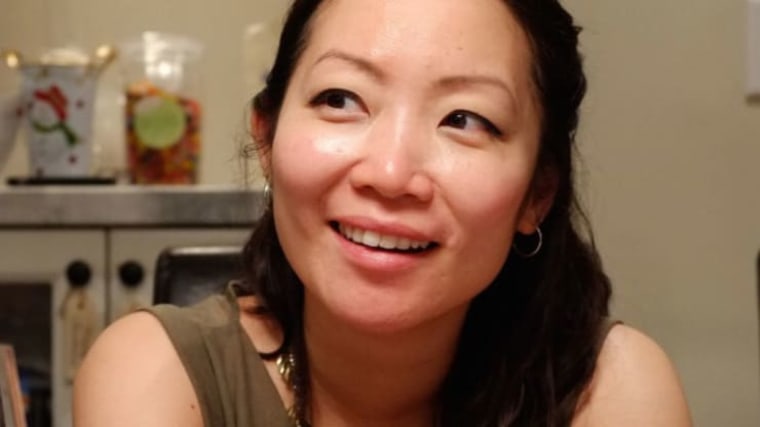So-called money diets work about as well as the ordinary kind.
That is, they may work for a short time, but you’ll have to stay on the diet to keep the weight off.
There’s plenty of disagreement about whether diets truly work, and whether money diets are effective.
A money diet sounds terrible to Monica Sipes, a certified financial planner and senior wealth advisor at Exencial Wealth Advisors in Frisco, Texas.
“It usually follows an overspend or a bad financial situation,” Sipes said. “It’s a restriction, often temporary, and I haven’t ever seen it work well.”
Sipes never recommends this strategy. You’re better off with a budget and some financial goals, which you support with some type of savings and perhaps a sacrifice. “Ultimately, it comes down to why you are making the decisions around your money, not a temporary restriction to undo bad spending habits,” Sipes said.
One approach that can work is trimming your budget, says Lauren Anastasio, a certified financial planner at New York personal finance company SoFi. Anastasio calls this the dieting equivalent of having a side of veggies instead of a starch.
But avoid the equivalent of crash dieting when it comes to your finances, she adds. “I rarely encourage someone to go on a no-spend diet or budget,” Anastasio said.
The ‘diet’ problem
Alicia McElhaney, founder of She Spends, a personal finance website aimed at women, says there’s nothing wrong with comparing saving with healthy eating. “It’s described as an investment in your future, which is great,” McElhaney said.
What McElhaney doesn’t like is when people equate not saving money with being overweight or lazy. “I’ve seen quite a bit more talk about dieting, body hate and discomfort with fatness on social media in personal finance circles than I expected when I first got into this,” McElhaney said.
Weight is a fraught subject in our culture, McElhaney says. “So, of course, it seeps into everything, including personal finance,” she said.
The best tips are sensible
The pros recommend dieting sensibly, and that goes for your finances, too.
A budget doesn’t have to be restrictive. It just means you create a plan for your money. Your goal is to become more aware of how you spend, Anastasio says.
The best time to restrict your spending in a determined/short-term way is when you have a specific financial goal. Whether you’d like to pay off credit card debt or save for a vacation, reducing your discretionary spending frees some income to allocate toward those goals, Anastasio says.
Her firm encourages members to divide their income into three parts commonly known as the 50/30/20 rule of budgeting: 50% should go to fixed, essential expenses such as rent, utilities and insurance; 20% goes into savings; and 30% is for discretionary spending.
Be realistic
As can happen with food dieting, being too restrictive financially can end in binging. Whether it’s money or calories, the goal should be something practical and sustainable.
“Reevaluate your plan and make adjustments,” Anastasio said. You can taper off regular check-ins after you’ve established some good habits.
Definitely tweak your plan as you go along. “Sometimes we like to think we can make it to the gym every morning before work but find that we’re more likely to go to the group exercise classes offered in the evening,” Anastasio said.

Think mindset
Spending diets, no-buys and no-spends aren’t on Pauline Yan’s radar. “The brain doesn’t process the negative part that well,” said Yan, 41, a portfolio manager in Toronto. Instead, all your brain is likely to hear is “spending,” “buy” and “spend.”
And your brain will then notice all the opportunities to buy and spend.
That’s why people boomerang after a diet, Yan says. “They used up a lot of willpower to make it through,” Yan said. “But I find the yo-yoing back and forth to be worse for my overall budget.”
It helps to dig into the “why” of a purchase. After all, most of us have pretty much everything we already need. New lipstick? Yan says she’s got plenty. “I don’t need a new one,” Yan said. “Same with clothes. No one needs another little black dress.”
Purchases often come on the heels of a feeling. “People are not in touch with what they’re feeling,” Yan said. “We don’t want to admit we feel bad."
“If we do, we’re trained to buy our way out of it,” she added.
The solution is to get in touch with your feelings. Why do you want to make a certain purchase?
Yan does two things when she wants to buy something. First, she scouts whether she already owns a similar item. If she does, she writes it down, which sparks her to ask why she’d like to buy it again.
She found herself eyeing a makeup palette that she might use on a trip and had a lightbulb moment. “The reason I liked it is, I really enjoy traveling,” she said. “That’s going to be perfect when I go somewhere.
“I was trying to buy the feeling I have when I go on vacation.”
Her solution was to plan a trip and find a picture of a destination. Yan kept it in her wallet as a reminder of her true goal. “I feel like a lot of the buying [we do] has to do with a value that we want in our lives,” she said. “We’re just going about it in a very consumeristic fashion.”
Disclosure: Invest in You: Ready. Set. Grow. is a financial wellness and education initiative from CNBC and Acorns, the micro-investing app. NBCUniversal and Comcast Ventures are investors in Acorns.
MORE FROM BETTER
- Want to get out of debt and save money? Try the 50/20/30 rule
- I hired a 'trainer' to get my finances in shape — and this is what I learned
- How to create an emergency fund in just 90 days
- These changes to your 401(k) can boost your retirement savings
Want more tips like these? NBC News BETTER is obsessed with finding easier, healthier and smarter ways to live. Sign up for our newsletter and follow us on Facebook, Twitter and Instagram.


